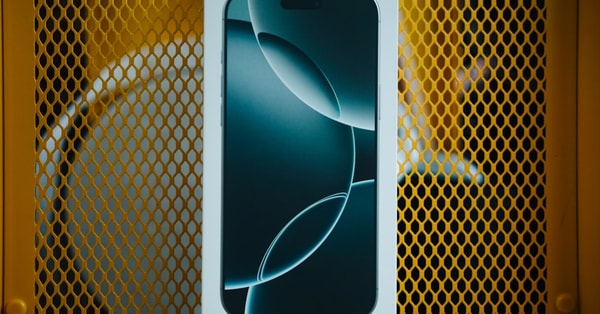FCC Investigates BBC's Editing of Trump's January 6 Speech
The FCC investigates the BBC's editing of Trump's speech, raising questions about media ethics and potential legal repercussions.
A recent investigation by a U.S. media regulator, under the leadership of a close ally of Donald Trump, is scrutinizing the BBC’s editing of the former president’s speech. This examination follows the airing of a controversial episode of Panorama that has sparked significant debate and led to high-profile resignations within the BBC.
The Federal Communications Commission (FCC), led by Brendan Carr, has reached out to Tim Davie, the BBC’s outgoing director general, to clarify whether the edited Panorama episode was ever broadcast in the United States. The inquiry comes in the wake of complaints from a former independent adviser to the BBC, prompting both Davie and BBC News head Deborah Turness to resign.
The controversial Panorama episode aired just a week before the U.S. election and featured edited segments of a speech delivered by Trump on January 6, 2021, prior to the Capitol riots. The editing raised eyebrows as it combined statements made nearly an hour apart, implying that Trump urged his supporters, "We’re going to walk down to the Capitol and I’ll be there with you, and we fight. We fight like hell." This splicing has drawn criticism for potentially misrepresenting Trump’s message.

In light of the backlash, the BBC has issued an apology for the editing of the speech. Meanwhile, Trump has threatened to initiate legal action against the BBC in Florida, seeking damages of up to $5 billion (£3.8 billion), although no formal lawsuit has been filed to date. Samir Shah, the chair of the BBC, reassured staff that the organization is "determined to fight" against Trump’s claims of defamation.
Central to this investigation is the determination of whether the Panorama episode was ever made available in the U.S., which could significantly affect any forthcoming legal proceedings. Notably, the episode was accessible on iPlayer, the BBC’s digital platform, which is not available to U.S. audiences.
Brendan Carr, a known supporter of Trump and a vocal critic of perceived liberal bias in mainstream media, sent a letter to the BBC on Wednesday night. While the FCC lacks direct jurisdiction over foreign broadcasters, Carr has also reached out to heads of U.S. broadcasters PBS and NPR—partners of the BBC—seeking clarity on whether the FCC’s regulations were violated by the BBC’s actions.
Carr aims to ascertain whether the BBC provided either video or audio of the edited speech to NPR, PBS, or any other FCC-regulated entity for airing in the U.S. This inquiry highlights the complexities surrounding international broadcasting and regulatory oversight.
Concerns about the editing were initially voiced by Michael Prescott, a former independent adviser to the BBC’s editorial guidelines and standards committee. Prescott departed from his role earlier in the summer, indicating that there were significant issues that needed addressing.
Legal experts have begun to weigh in on the potential ramifications of Trump’s threat to sue the BBC. David McCraw, the lead newsroom lawyer for the New York Times, expressed that the BBC could have a "very solid case" in defending against Trump’s claims. He remarked, "Without knowing anything that went on inside the walls of the BBC – what emails are there, what text messages are there – I would not be worried."

McCraw also emphasized that if the case were filed in Florida, determining appropriate jurisdiction could complicate matters. He noted that if no one in Florida had seen the programme, this would impact the case’s viability. Nevertheless, he reassured that with the right legal representation, the BBC should be able to navigate these challenges.
The ongoing investigation into the BBC’s Panorama episode exemplifies the intricate relationship between media, politics, and regulation. As the FCC, under Brendan Carr’s leadership, delves deeper into the matter, the implications for both the BBC and Trump could reshape the conversation about media responsibility and the influence of political figures on broadcasting standards. With Trump’s threat of litigation looming, this situation will likely unfold further, drawing attention from legal experts, media analysts, and the public alike.
Tags:
Related Posts
M2 MacBook Air vs M2 Pro: Which is Best for Video Editing?
Deciding between the M2 MacBook Air and M2 Pro for video editing? Let's explore their strengths and find the perfect match for your editing needs!
The Smartphone Dilemma: Your Guide to Choosing Wisely
Stuck choosing a smartphone? Join us as we explore the best options for gamers, photographers, and business folks in 2023. Let's find your perfect match!
Protecting Your Smart Home: A Simple Security Guide
Smart homes are amazing, but they need security too! Discover easy tips to protect your IoT devices and enjoy peace of mind in your connected home.
Unlock the Magic of Smart Home Automation: A DIY Guide
Ready to elevate your living space? Discover how to automate your home with simple tips and a DIY approach that makes life easier and more enjoyable.
Smartphone Showdown: Find the Best for Photos, Gaming & More
Choosing the perfect smartphone can be tough! Dive into our ultimate showdown to see which device shines in photography, gaming, and productivity.
Smart Home Security: Essential IoT Setup Steps You Need
Transform your home while keeping it safe! Discover key IoT security steps to protect your smart devices and enjoy worry-free automation.